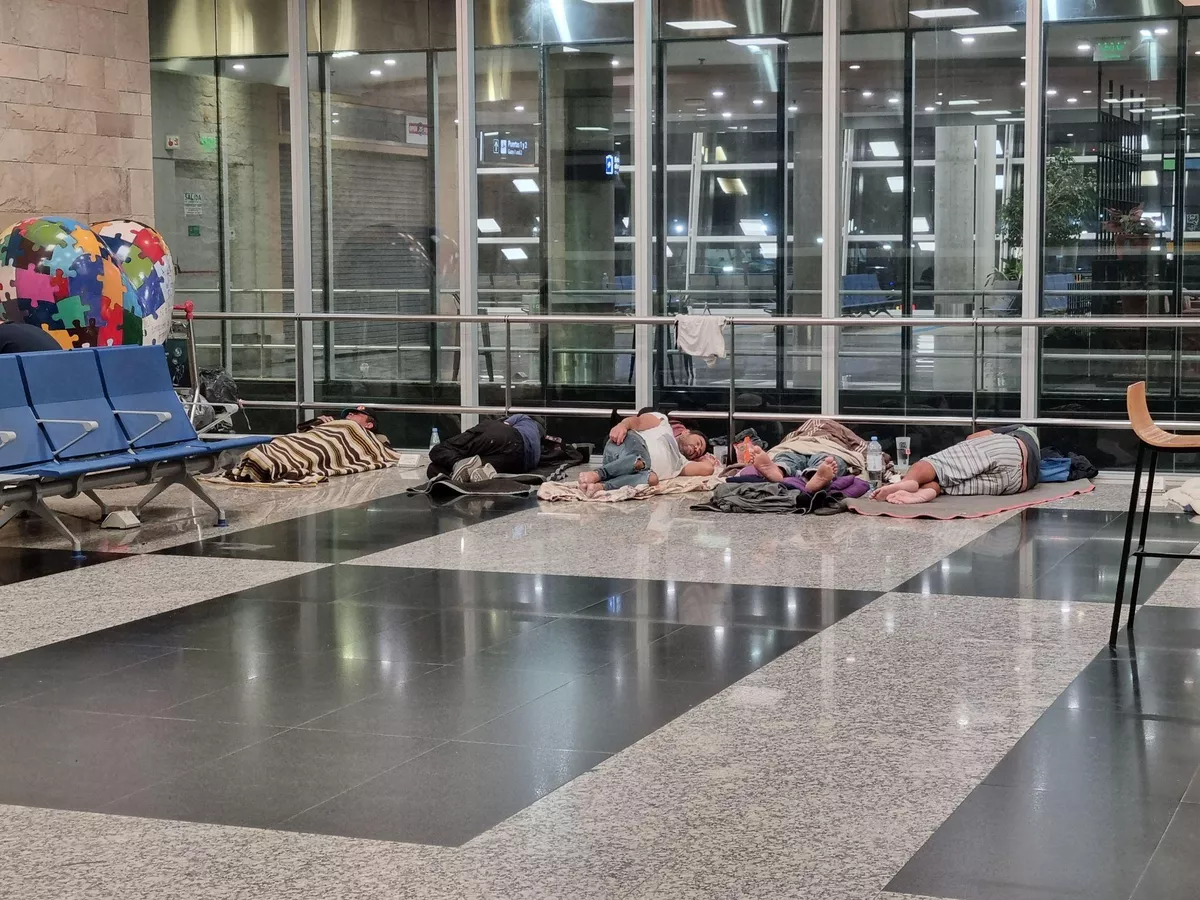Dozens of homeless people flock to the metropolitan airport of Aeroparque to find shelter for the night.
Amid the economic quake, inflation is hitting the most vulnerable sectors hard.
The situation, already present in 2018, deepens in the heat of the inflationary increase.

The contrast is perplexing to anyone who observes it.
Jorge Newbery International Airport, located in one of the most expensive areas of Buenos Aires, became a shelter for dozens of homeless families who find a safe roof in the establishment.
Just meters away from the thousands of passengers who fly daily to domestic and foreign destinations, the economic crisis that Argentina is going through is felt by the most vulnerable.
#Argentina| Personas en situación de calle pasan la noche en el Aeroparque de la Ciudad de Buenos Aires. pic.twitter.com/JDKvHQtg2K
— Sputnik Reporteros (@Sputnik_Report) April 13, 2023
“I have been working here for five years, and this is the first time I have seen this number of people.”
“For the last three weeks, the number has not stopped growing,” Sandra, one of the cleaners at the air terminal, told Sputnik.
The number of people in this extremely vulnerable situation varies between 50 and 100.
“Last time I counted 70, who mostly come to sleep at night. Although several are usually here all day,” she adds.
“This has happened several times, but not with such a large number of people,” says Sandra.
Although sources from Aeropuertos Argentina 2000 – the company in charge of the control of the facility – point out that this picture began to be glimpsed in 2018, when the crisis occurred during the Government of Mauricio Macri, the same voices recognize that the pressing inflationary escalation aggravates the situation.
#Argentina| Postal de la crisis: personas en situación de calle pasan las noches en el Aeroparque de Buenos Aires, mientras los pasajeros embarcan a pocos metros de distancia. pic.twitter.com/EIFJvMsaYl
— Sputnik Reporteros (@Sputnik_Report) April 13, 2023
The last Census of Street People in Buenos Aires indicates that 2,573 people live on the streets in the national capital.
Excluding those who receive assistance from the Social Inclusion Centers, 968 people without any kind of assistance cannot find a roof over their heads.

At the national level, poverty stands at 39.2%, while indigence rose to 6.2% and affects 2.3 million people.
In the face of inflation, which in February climbed to 6.6% per month – and exceeds 100% year-on-year – the basic food basket rose to $98,186 (US$444) for a typical family residing in the City.
This is an increase of 11.8%, above the general price level.
At the same time, the Minimum Living and Mobile Wage is $80,342 (US$363).
“We have been seeing this situation for some time now.”
“Many people sleep or live here,” Jorge, a security worker who has been working at the airport for 20 years, told Sputnik.
“This is the first time I’ve seen something like this: in all this time, I’ve never come across this image”.
The commotion generated by the image is deepened by the fact that some of the victims are older adults and children.
“There are grandparents and some children.”
“Every night I see these people, and I think that most of them are always the same”, Sandra emphasizes.

The gradual growth in the number of homeless people who come to the airport in extremely precarious conditions is also due to the end of summer and the advent of autumn.
“Now the cold weather is coming, and these people can’t find shelter in the street.”
“Perhaps here there is a minimum comfort that is not available outside, such as the possibility of having a clean place to bathe,” says Jorge.
When consulted by Sputnik, Aeropuertos Argentina 2000 sources remarked that the facility does not have the authority to care for these people.
“It is a public space. The company has no police power in the airport area, and has no power to evict these people”.
The authorities point to the national government.
“We can receive them, but the responsibility to take care of these people and get them out of this situation is not ours.”
“We are only obliged to guarantee equal treatment and non-discrimination”.
Just as the voices quoted so far did not detect a state response materialized in direct assistance to these people living in extreme vulnerability, the airport employees did not witness the arrival of help either.
“So far, I did not see them receiving food from any organization”, Sandra points out.
“We can’t do anything but clean the facilities so that they are in good condition.”
“The answer lies elsewhere, not at the airport,” says the worker.
With information from Sputnik

